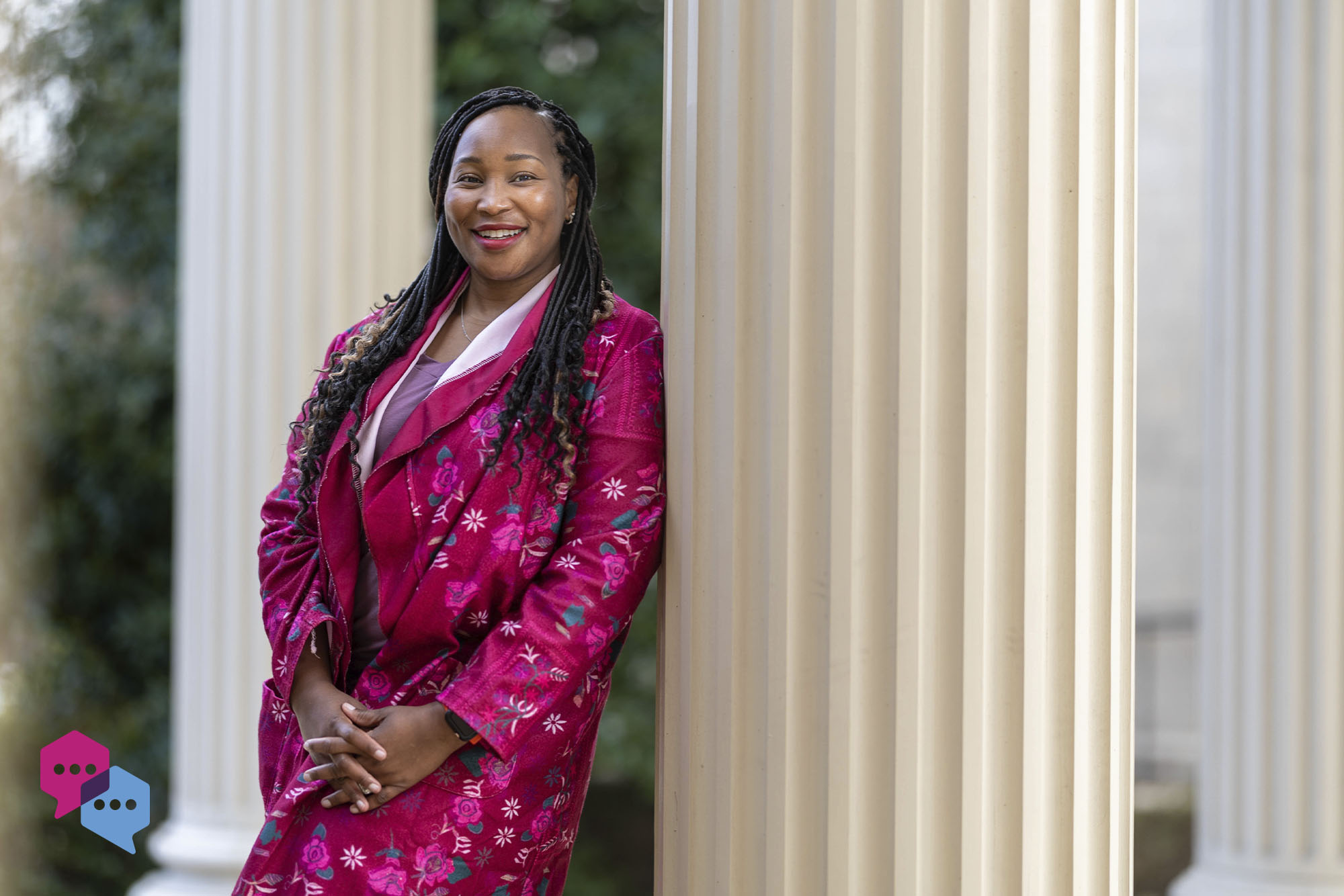Q: When you were a child, what was your response to this question: “What do you want to be when you grow up?”
A: I wanted to help people who were dealing with challenges like poverty and violence, but I especially wanted to help people like my mom. She worked three jobs and was never home, and I wanted to figure out how I could help people like her not to have to work so hard and spend more time with their kids as they grow up.
Q: Share the pivotal moment in your life that helped you choose your field of study.
A: It was my first day of ninth grade at Boston Latin School (BLS) when I realized that a lot of my Black friends and classmates, especially the boys, who entered with me in seventh grade were no longer there — and I was really sad and wondered why. They all ended up at an alternative high school. Many of us came from the same communities and had similar family structure, and I wanted to understand what made it possible for me to stay at BLS and graduate and what made it hard for my Black male friends to not be there by ninth grade. My graduate studies focused on understanding the role of families in supporting children’s learning and achievement.
Q: Tell us about a time you encountered a tricky problem. How did you handle it and what did you learn from it?
A: I have had the great fortune of having wonderful, thoughtful, and supportive mentors throughout my careers. There was one occasion, though, when I was an emerging scholar that one of my mentors — who I really valued and looked up to — was treating one of my colleagues in a demeaning and dismissive way. I was the youngest one in the room, and I was a junior scholar who still needed this mentor’s support and guidance. I ruminated on it all night debating what to do because I felt really uncomfortable with the situation. This to me was a true dilemma: Say something to my mentor and potentially have my career ruined, or say nothing and not live up to my moral and ethical values.
After thinking and talking about it with my then-boyfriend, and now husband, I decided to speak with my mentor about what they did and how it looked and felt to me. There was a risk I could be viewed as the “aggressive and angry Black woman,” but I knew that speaking up was the right thing to do. While it turned out okay — my mentor understood that what they did was not right — it taught me that I need to lead my life, including my career, in a way that is about justice, visible or invisible.
Q: Describe your research in 5 words.
A: Early childhood equity is justice.
Q: What are your passions outside of research?
A: Engaging in sports and watching as a spectator and a parent. I often watch sport prognosticators and think about what I would say about a team, player, coach, or particular sports-related event. While people only see the monetary value of sports, such as athletes who make money or schools and owners who make money, I think about the cognitive skills it takes to play a sport like basketball or football. People never think about how much thinking goes into it when they see the “product” on the field. When I was in college, sports gave me structure, relationships, and something beyond myself.


